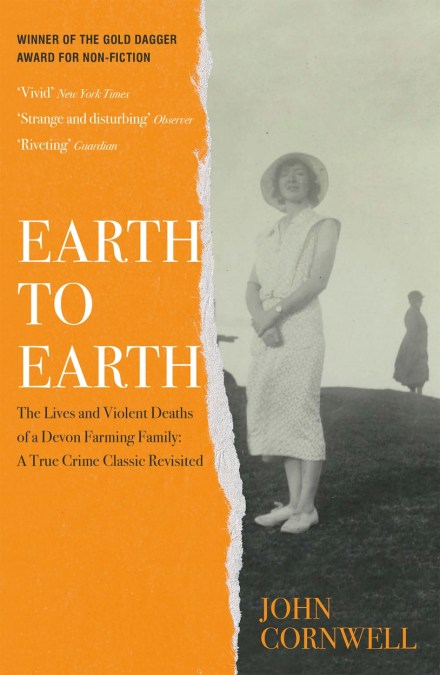On Tuesday morning, 23rd September 1975, the corpses of three unmarried siblings, last surviving members of the ancient Luxton clan of Winkleigh, North Devon, were found on their remote farm. All three had had their heads blown off. Robbie’s cheeks and neck had been stabbed; Frances had a broken leg. Strangely, each of the four doors to the house had been locked from the inside.
The Luxtons’ idyllic farm on a stretch of lush countryside between Exmoor and Dartmoor had been lovingly tended with outdated methods. There were rumours of a thwarted betrothal, wrangles over money and property, generational feuds in the extended family, bouts of insanity and extreme miserliness.
John Cornwell’s classic investigation into the violent deaths of these unhappy siblings told a story of a farming family struggling under unbearable practical and emotional pressures, their violent deaths, the police investigation and the proceedings of the inquest. The official verdict was that there had been a suicide pact, but Cornwell decided to revisit the evidence forty years after Earth to Earth was first published, and he finds that there were anomalies in the evidence suggesting alternative, criminal scenarios, and the misery that preceded these savage deaths suggested even darker elements.
Were the Luxtons scapegoats of local malice, or victims of a murderous family conflict, stricken by a dire ancestral curse?
This new edition of a true crime classic includes a postscript in which the author describes the extraordinary lengths that the great poet Ted Hughes, a neighbour of the Luxtons, went to try and suppress publication of the book.
The Luxtons’ idyllic farm on a stretch of lush countryside between Exmoor and Dartmoor had been lovingly tended with outdated methods. There were rumours of a thwarted betrothal, wrangles over money and property, generational feuds in the extended family, bouts of insanity and extreme miserliness.
John Cornwell’s classic investigation into the violent deaths of these unhappy siblings told a story of a farming family struggling under unbearable practical and emotional pressures, their violent deaths, the police investigation and the proceedings of the inquest. The official verdict was that there had been a suicide pact, but Cornwell decided to revisit the evidence forty years after Earth to Earth was first published, and he finds that there were anomalies in the evidence suggesting alternative, criminal scenarios, and the misery that preceded these savage deaths suggested even darker elements.
Were the Luxtons scapegoats of local malice, or victims of a murderous family conflict, stricken by a dire ancestral curse?
This new edition of a true crime classic includes a postscript in which the author describes the extraordinary lengths that the great poet Ted Hughes, a neighbour of the Luxtons, went to try and suppress publication of the book.
Newsletter Signup
By clicking ‘Sign Up,’ I acknowledge that I have read and agree to Hachette Book Group’s Privacy Policy and Terms of Use
Reviews
Cornwell approaches it with the tenacity of an investigative journalist, the sympathy of a social worker drawing up case notes and the descriptive capacity of a novelist. What differentiates his book from the mass of true life crime stories is its insistence on making vivid for us not only the loud horror of the Luxtons' deaths, but the 40 years of claustrophobic rage, bred in silence, that preceded them
Exceptional true crime in the tradition of Truman Capote's In Cold Blood, a forensic examination of three mysterious killings but also an utterly absorbing portrait of a family, a region and a way of life. The new coda about Ted Hughes and the publication of the original book, fascinating in itself, adds a new, unsettling dimension to the whole story. A rich, compelling and powerful book.
